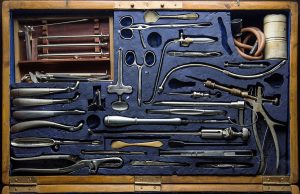Sage Advice
By Iris Winston
A key part of overall healthcare

Almost every time my dentist checks my teeth, he makes a positive comment about their condition. And that invariably makes me think of my mother. As far back as I can remember, she insisted on taking me for regular visits to the dentist two or three times a year.
This was in England, shortly after the end of the Second World War. It was a time when many people regarded a child’s baby teeth (also known as milk teeth) as expendable. After all, their thinking went, the baby teeth would be gone soon anyway, so why waste time and money on fixing, filling, or extracting them? Many people found it hard to justify the effort involved in taking a toddler or preschooler to a dentist, a trip that could cause pain, misery, and cash in the 1940s and 50s when money was short, and there was little publicity about the importance of oral hygiene and care. The usual attitude was that patients sought dental care when they were in pain. Therefore, many parents waited until their children’s permanent teeth were in place before doing anything.

My mother, one of few people in the U.K. in her thirties to have all her own teeth (rather than dentures), thought differently. Long before the importance of early dental care was common knowledge, she insisted that caring for baby teeth was vital. Instinct and logic told her that oral care should begin at the very beginning in the quest to develop healthy permanent teeth. She was not a medical professional, simply a caring mother, determined to do everything to keep her only child as healthy as possible. If that involved a bit of pain (and dental treatments frequently caused severe discomfort in those days),that was unfortunate ,but a small amount of suffering now was better than greater problems later.
I don’t remember much about any pain, but I do recall that hearing the grinding sound of the drill at work was unpleasant. But at least my mother was always nearby to hold my hand and keep me calm while any drilling, poking, or filling cavities was happening. And there was usually a little gold at the end of any nastiness in the dental rainbow in terms of a visit to a toy store or a friend’s house after the event, so blotting out any bad memories, as intended.
These days, modern techniques and advanced equipment mean that visits to the dentist are no longer a prescription for pain and fear. Certainly, there is slight discomfort on occasion, but none of the agony that once made patients cringe at the thought of climbing into the dentist’s chair. Sadly, some people still remember the awful pain of yesteryear and are too scared to return to a dentist’s office to see how
much things have changed.
Nowadays, while it would be an exaggeration to say anyone looked forward to a dental appointment, it is no longer the near torture it once was. Even the occasional lectures on flossing from eager dental hygienists are a thing of the past. Any conversation is devoted to checking on sensitivity and explaining an action or piece of equipment, always followed by a request for the patient to signal any discomfort.
The main aim among dental professionals today is to keep teeth healthy and to preserve them for as long as possible. Oral care from babyhood to old age has increasingly become a key part of overall health care.
Even when extractions cannot be avoided, dental implants or well-crafted, natural-looking plates maintain the appearance of the mouth. Dental specialists such as oral surgeons or orthodontists are also a regular part of the battle for healthy mouths and teeth.
Unfortunately, another aspect of the current dental picture is that because the many elegant offices are packed with hugely expensive equipment, dental treatments are much pricier than in those far away pain-filled days.
But the good news is that continuing quality dental care both preserves teeth and is a major factor in maintaining general health. The official word that caring for a baby’s teeth is essential has been established for some time. It instills good dental habits and helps to ensure a lifetime of dental health. My granddaughter had fillings and caps from an early age and now has great teeth and is happy to return to her dentist regularly. As my son said, the only pain any of his family felt during the treatment was financial.
It all goes to show that mother knew best all those years ago.






